December to February is the peak period for Scandinavian stays in Hua Hin (long-stay visitors and other tourists), while some 1500 Swedes also live there permanently. The Swedish Association in Hua Hin, which recently celebrated its ten years anniversary, is the coordinator of lots of activities that many Swedes and other Scandinavians engage themselves in when spending time in the famous royal seaside resort.
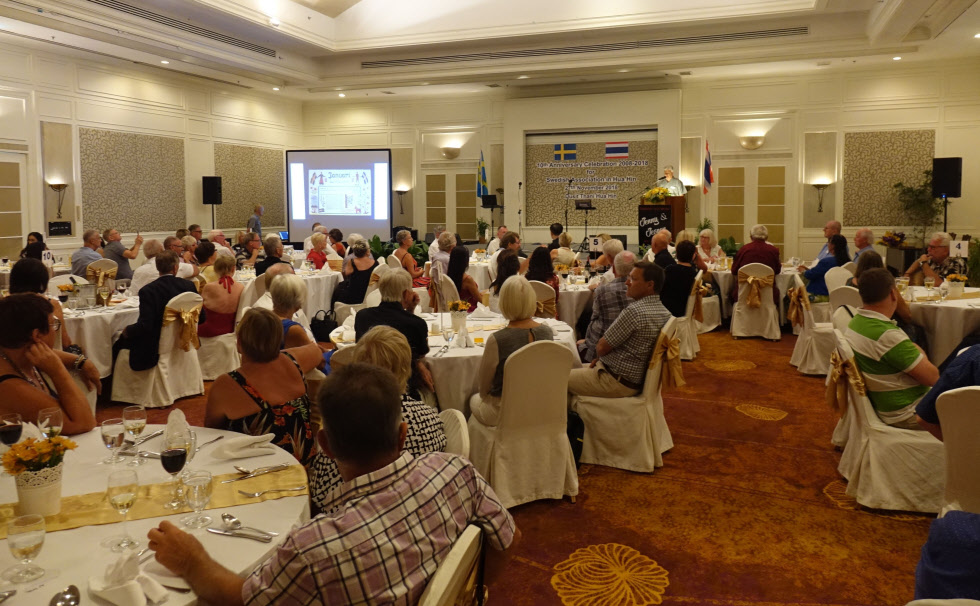
Last time ScandAsia featured this association was back in January 2013, then describing the influx of Swedes going back all the way to the 2000s and a residential environment being “very international”.
The association was started as a platform to network and learn from each other. Ten years later, it presents living proof that the community thrives, while we learn from two Board members that the role of the association is somewhat different these days.
Lasse Håkansson, Chairman of the Board and Sune Westhed, Member of the Board meet up in downtown Hua Hin just after their 10 Years gala dinner has taken place, held on Tuesday 27 November, the very same date when the association was formed exactly ten years ago.
From the successful celebration held at Dusit Thani Hotel in Hua Hin they related that some 120 Swedes, Thai spouses, girlfriends and wives, in addition to their Guest of Honour, the Swedish Ambassador couple Staffan and Karin Herrström from Bangkok, some embassy people including Sweden’s Consul General Hua Hin and the Vice Consul from Bangkok, and the new Swedish priest in Bangkok, Eric Stenberg.
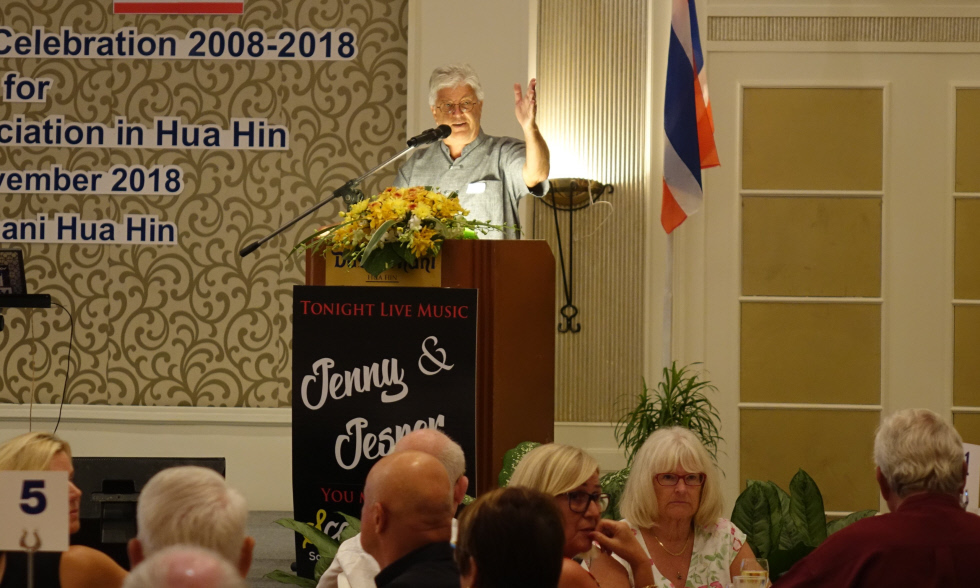
There were friendly speeches, a delicious (mainly Thai) food buffet and live entertainment by a duo from the Philippines all night long.
The Dusit hotel has hosted many Swedish tourists throughout the year and the Swedish consulate is also based there since opening in 2012.
Lasse and Sune are among those spending six months in Thailand and the rest of the year back in Sweden.
We are about 3,000 Swedes doing that and the population in Hua Hin is 100 000. The same amount are Finns, and a bit fewer are Danes, But I think we Swedes are the largest foreign population here,” says Lasse, including the estimated permanent residents.
“I have only been here for four years and I have worked in Bangkok once earlier. Then we often travelled to Hua Hin on weekends, finding it to be a nice beach vacation resort. I got hooked. I think that those who come to Hua Hin like more the quiet setting,” he explains.
Sune, who has been coming to Hua Hin for twelve years. With his Thai wife he owns a house outside town, to which they return every year during the European winter.
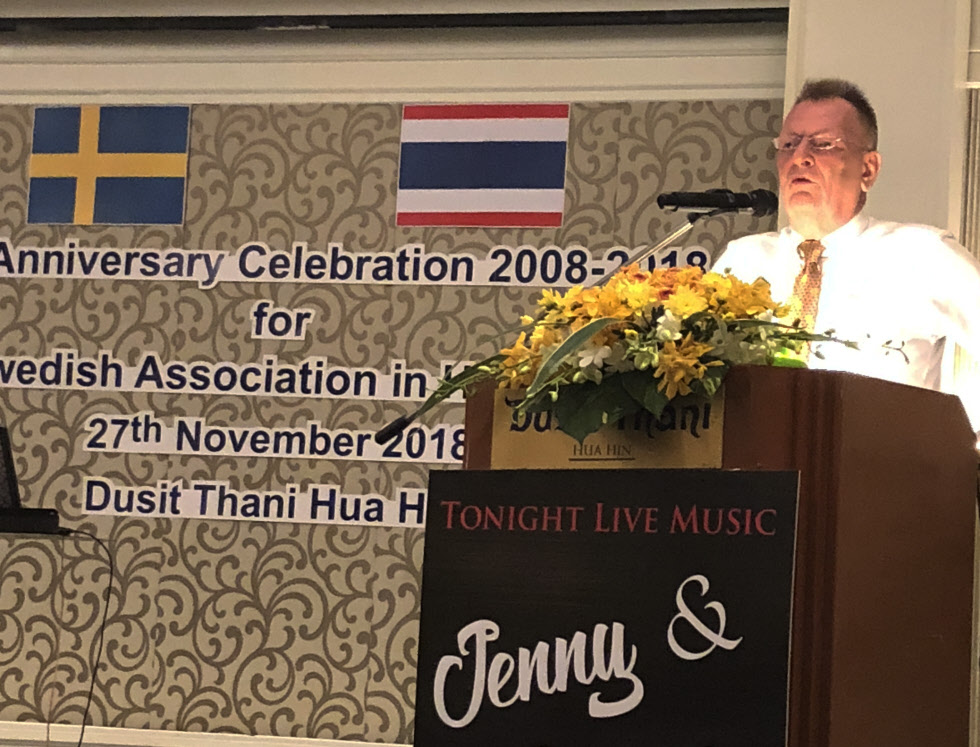
“By coincidence we bought here. Then there were already many Swedes and Europeans here, which I like.”
Lasse and Sune both also like the more genuine Thai culture that they find there.
“We meld in well with the society here and you have everything you yearn for in the form of restaurants, nightclubs, shopping malls and even Swedish groceries! And since the late King spent so much time here, this also meant that this has been quieter than other destinations,” says Lasse, who thinks there is more of everything.
And in addition to the today fourteen golf courses in the area Lasse also highlights the new True Arena Hua Hin, a premier sports complex.
“We must have on Thailand’s best sports facilities with eight tennis courts, badminton courts, fitness equipment, championship pools, two football grounds etc.”
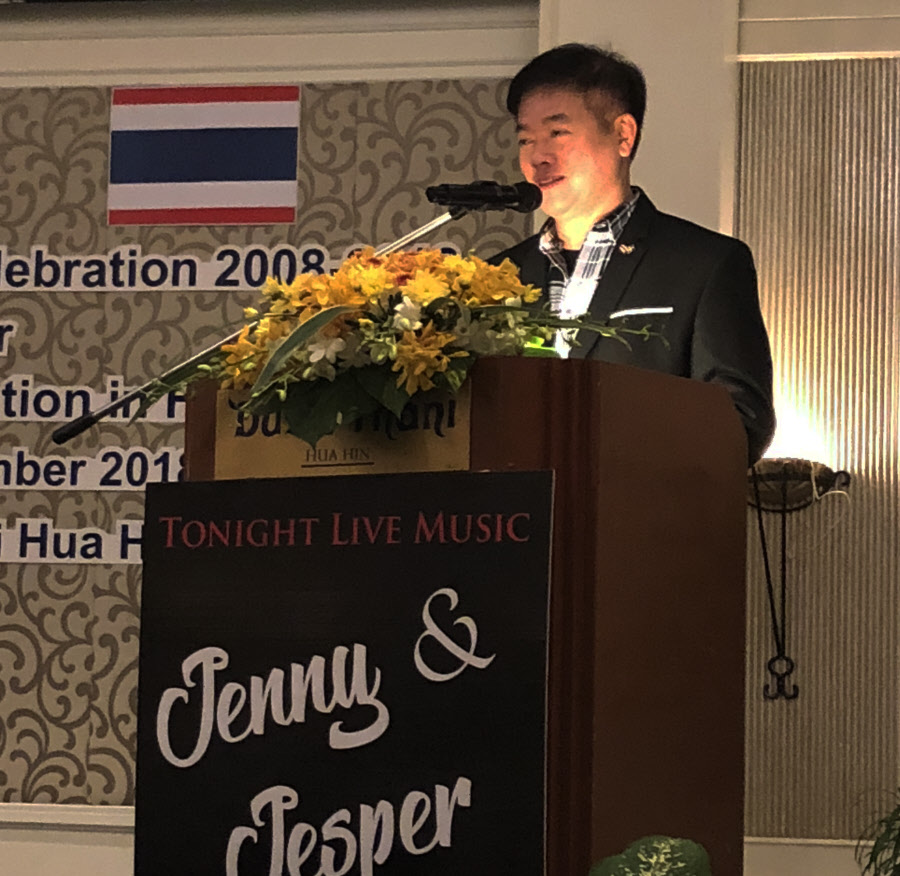
“They are building a lot here, which surprises me as the economy is not strong. So optimism is thriving here when it comes to construction,” observes Sune.
The number of hotels has also increased, including mixed-use large residential complexes.
Also, new international flights have started to come to Hua Hin. AirAsia now fly there from Kuala Lumpur. The roads between Hua Hin and Cha-Am have also been expanded, as the two adjacent seaside towns are increasingly merging into one.
“So quite a lot is happening! My experience is that with increased infrastructure spending the society will also grow. Cities and countries that do not spend on infrastructure have difficulty in growing,” thinks Lasse.
One thing that has however not changed is all the red tape when it comes to permits such as visa. Both Lasse and Sune find it cumbersome and annoying.
Lasse thinks that other emerging countries may start to compete strongly with Thailand because of this.
“Some are saying that Vietnam is now where Thailand was twenty years ago, and it is also possible for foreigners to own land there, contrary to Thailand, and it’s probably over all twenty per cent cheaper to live there compared to here. So there are other competitors today than you had back then. Now many travel to Vietnam,” says Lasse.
It will be the next large tourist country!” agrees Sune.
Both also think there is a drop in visitor numbers to Hua Hin.
“If you talk to business operators they say that the good times are not what they used to be, with a shorter peak season when they can make profit. And it’s shorter stays than previously when almost everyone spent six months here; now it is concentrated around December to March. So less foreigners are coming here all in all. And Thailand has become slightly more expensive and the Swedish currency has been very low against the Thai baht for years now,” Lasse concludes.
“I can see on the beaches that there are fewer tourists here nowadays. And the Thais also say that,” says Sune.
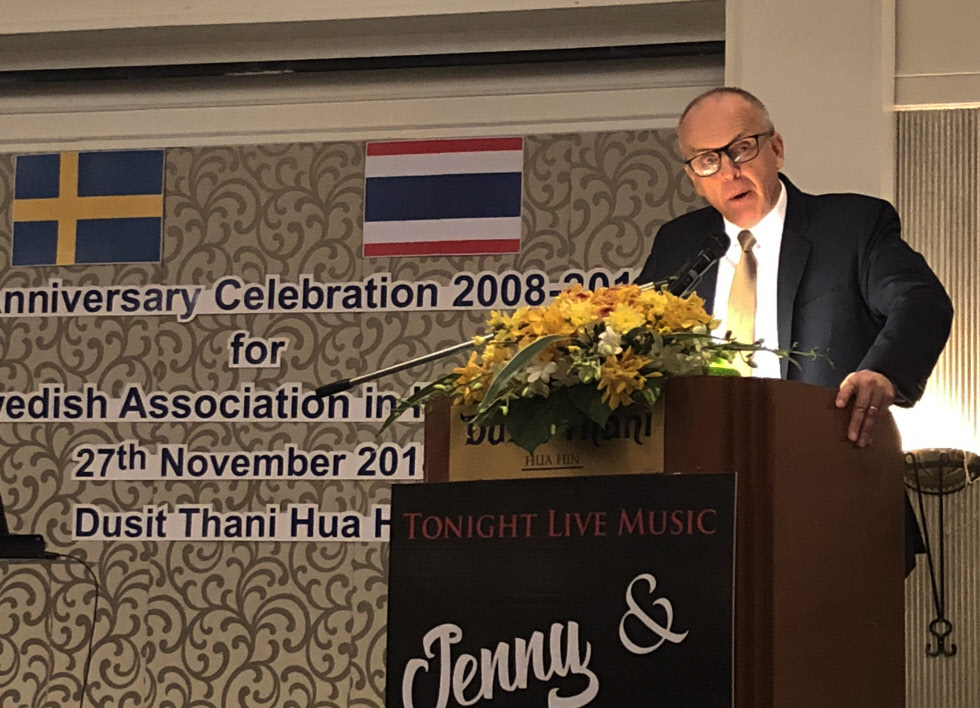
New role for Swedish Association Hua Hin
All the many questions connecting to rules and regulations were in fact initially a strong reason for why the Swedish Association Hua Hin was started in the first place. Says Lasse: “Things have changed throughout the years. From what I have heard from those active before is that nobody knew anything about visas, what applied in Thai society and other practical know-how. Those topics then united all those people into the Swedish Association.”
“Nowadays, most are established so we do not have the situation with settlers arriving like back then, so the needs are a bit different. Aside the association, various networks have been established around interests, such as bridge club, chess, golf, book clubs, and even afternoon tea. The Swedish Association does not play the same role these days. It’s primary function is to moderate all these activities one wants to engage in,” he explains.
“Here, five years from now, I think the largest population of foreigners in Thailand will not be Swedes but Chinese. I am noticing that on different areas here that Chinese are very interested, and when the middle class there grows just a few per cent you have tens of millions able to travel, which were not there before. Russians is also a large group but not here, where one will aim more for Chinese who usually bring money,” predicts Lasse.
But the Nordics are not leaving.
“The association will have another role going forward. Many have established themselves and now it is more about facilitating that one can do the activities one wants and can stay up to date about Thai visa rules that tend to change every year, and keeping the community together,” says the Chairman.
“The Norwegians (more or less a golf association) and the Finns also have many activities and we have started collaboration the three of us, where we will invite each other’s members to different activities.”
The nearest fun, joint event, as the Swedes told this to ScandAsia, was a Finnish Karaoke night – with a promise also for some Swedish songs.

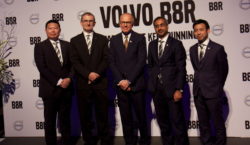
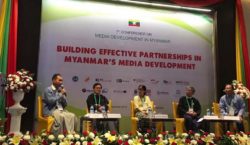
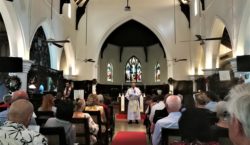
How do I join? I Speak Swedish!